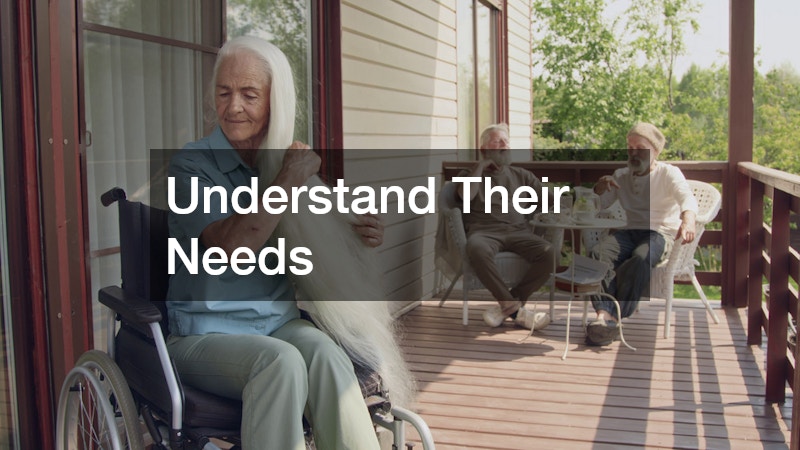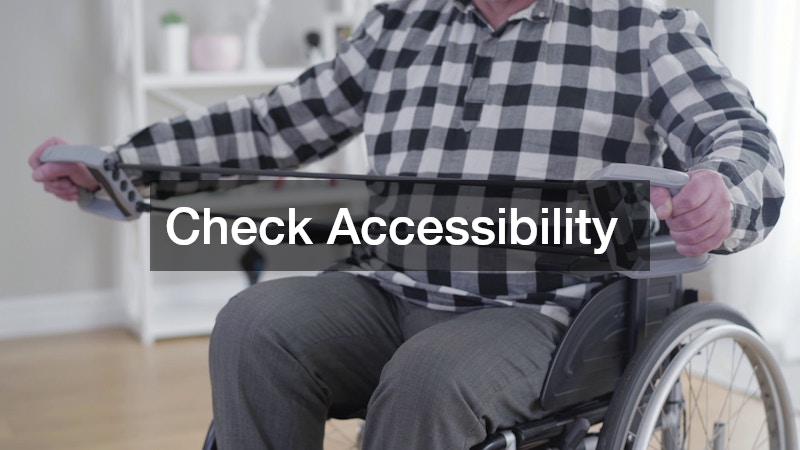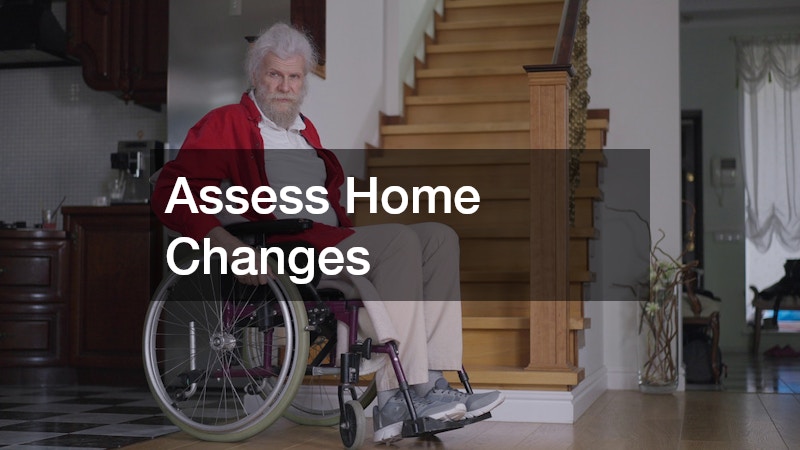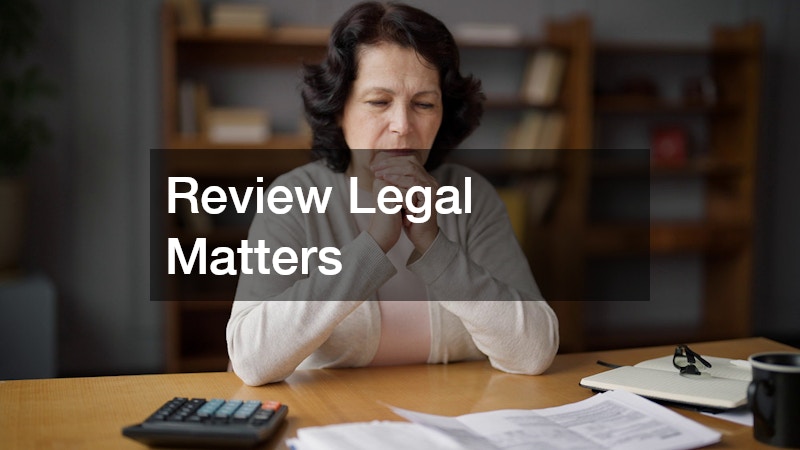
Helping your parents transition to a senior living community is a major decision. It’s one filled with emotional weight, practical considerations, and the hope of improving their quality of life. As families face this pivotal moment, many find themselves overwhelmed by the sheer number of options and factors involved in selecting the best arrangement. It’s not just about finding a place with available units. It’s about choosing a space where your loved ones can thrive, feel safe, and continue living with dignity and purpose.
Every parent has different needs, and every family approaches this search from a unique place. Some may be looking for communities that offer more independence and social opportunities, while others need facilities with built-in support for mobility challenges, medical concerns, or memory care. The process requires a balance of empathy and strategy, guided by careful thought about your parents’ current lifestyle, future needs, and personal preferences. Financial considerations, legal matters, and even the emotional impact of a major move must all be factored in.
This article is here to guide you through that journey, providing ten practical and compassionate tips to help you and your family navigate each step. Each section also emphasizes the importance of selecting the best fit, not just in terms of amenities, but in creating a fulfilling and supportive environment for your parents. Whether you’re just beginning your search or deep into the planning phase, these tips are designed to ease your stress and help you stay focused on what matters most: your parents’ comfort, safety, and happiness.
1. Understand Their Needs

When starting the process of selecting the best senior living option for your parents, the first step is to assess their needs thoroughly. Consider their daily routines, health concerns, level of independence, and social preferences. Are they still very active and looking for a vibrant social life, or are they beginning to need help with tasks like medication management or mobility? Understanding these needs will guide you toward a setting that supports both their physical health and emotional well-being.
If your parent is still independent but enjoys being part of a community, a retirement community might be the right choice. These living arrangements often provide a range of amenities geared toward older adults who want connection and convenience without the demands of homeownership. Touring multiple locations and asking about lifestyle offerings will help ensure a good match for your parents’ personality and routine.
The goal is to avoid placing them somewhere that either underestimates or overestimates their current capabilities. Selecting the best place means finding a community that can accommodate their needs today while remaining flexible enough to adapt to future changes. It’s worth involving your parents in this conversation too, so they feel empowered and respected throughout the decision-making process.
2. Explore Care Levels
As your parents age, their need for additional support might increase, making it important to consider care levels during your search. Not all senior communities offer the same services. Some focus on independent living, while others are designed to provide hands-on help with daily tasks. Understanding what level of care your parent may require both now and in the future will shape the direction of your planning.
An assisted living facility may be ideal if your parent needs support with meals, bathing, dressing, or medication, but doesn’t require round-the-clock medical supervision. These facilities typically offer private apartments and encourage as much independence as possible, while still having staff available for assistance. Be sure to ask what medical services are provided on-site and how emergencies are handled, especially if either of your parents has a chronic health condition.
Selecting the best care level can significantly impact your parents’ happiness and safety. Visit each potential facility, observe how staff interact with residents, and ask for a detailed breakdown of services. It’s crucial to plan for flexibility in care as well. What works today may not be sufficient tomorrow, and transitioning between levels should be seamless when needs change.
3. Check Accessibility

Accessibility plays a critical role in maintaining your parents’ independence and preventing accidents. Whether or not your parent has existing mobility issues, the living space should be designed to accommodate limited mobility, vision impairments, or other age-related physical changes. This includes things like wide doorways, walk-in showers, ramps, elevators, and thoughtful design that prevents falls.
Communities that offer disability living services typically focus on eliminating physical barriers and providing support infrastructure to meet individual needs. These services might include grab bars in bathrooms, wheelchair-accessible paths, or trained staff who help residents with mobility devices. Ask if they customize accessibility features or if the environment is already built with universal design principles.
Selecting the best place for your parent means considering not just how the facility looks now, but how functional and adaptable it will be for your parent’s long-term comfort. Even if they don’t currently need these services, choosing a community prepared for disability support can help avoid future disruptions and relocation.
4. Evaluate Safety
One of the most important factors when evaluating senior living options is ensuring the environment is safe. From physical safety features to the overall culture of care and emergency responsiveness, families should prioritize security for their aging loved ones. A safe environment reduces worry and allows everyone—especially your parents—to feel at ease in their new home.
When touring communities, ask about safety protocols like emergency call systems, staff training, background checks, fire exits, and visitor policies. Check that walkways are well-lit and free from tripping hazards, and ensure exits are secure yet accessible in case of emergency. The atmosphere should feel welcoming while also being structured to support safety across all areas.
Selecting the best senior living community means never compromising on your parents’ safety. Beyond physical design, consider the staff-to-resident ratio and how incidents are reported and handled. Safety should be part of the community’s culture, not just an afterthought. Make it a top priority during your selection process.
5. Assess Home Changes

Even with the move to a senior living community, your parent may need to temporarily or permanently remain in their current home during the transition. If that’s the case, making the home more manageable and accessible is crucial. Identifying areas where hazards exist or mobility is challenged can prevent injury and promote independence while you finalize longer-term plans.
Installing a chairlift for stairs can be a game-changer for aging parents who find staircases difficult or dangerous to navigate. This home modification ensures that multi-story homes remain usable, without forcing a parent to sleep on the main level or risk a fall. It can also extend their ability to age in place if they are not yet ready to relocate.
Selecting the best environment for your parent sometimes begins with improving their current one. Whether used as a short-term solution or part of a larger care strategy, features like chairlifts offer peace of mind while you’re identifying the right long-term community fit. Be sure to involve professionals who can recommend and install mobility solutions safely.
6. Plan the Move Well
Once the ideal community is chosen, the move itself becomes the next major hurdle. For seniors, relocating can be physically exhausting and emotionally taxing. Having a clear plan that breaks the process into manageable steps can help your parent adjust more easily and reduce your stress along the way.
Hiring a local mover with experience in senior relocations can streamline this process significantly. These professionals understand the nuances of moving older adults, including how to pack cherished belongings carefully and create a comfortable, efficient move-in experience. Ask if they offer services like furniture setup or donation pickup, which can make downsizing easier.
Selecting the best support during this phase helps make the transition smoother and more compassionate. A gentle, well-executed move can set a positive tone for your parents’ new beginning. Keep lines of communication open, and make sure your parent feels involved and in control every step of the way.
7. Review Legal Matters

Legal preparation is an essential but often overlooked part of planning for senior living. Ensuring your parents’ legal documents are current and aligned with their wishes gives everyone peace of mind and avoids confusion during emergencies. Wills, power of attorney, medical directives, and financial plans should all be reviewed before a move.
Working with elder law attorneys can make this process clearer and more thorough. These professionals specialize in legal issues facing older adults, including long-term care planning, guardianship, Medicaid eligibility, and estate protection. Their insight can help your family understand legal rights and obligations in the context of senior living choices.
Selecting the best path forward means securing legal protection and guidance for your parents’ future. Don’t wait until a crisis to handle these matters. Starting early ensures smoother transitions, better financial planning, and fewer surprises. Legal preparedness is an important foundation in any long-term care strategy.
8. Budget for the Shift
The financial side of transitioning to a senior living arrangement can be complex. Understanding the total cost of the move—both immediate and long-term—is key to avoiding unexpected burdens. Budgeting should include not only monthly living expenses but also one-time costs like application fees, deposits, or moving services.
Working with professional moving companies can help provide clarity and structure for the transition. Many offer senior-specific packages that include packing, transportation, and even furniture assembly at the new residence. Some also coordinate with senior living communities directly, helping reduce the stress for both seniors and their families.
Selecting the best approach means factoring in every cost from the outset and planning for sustainability over time. Compare moving service quotes, ask about hidden fees, and determine what’s essential versus optional. Being proactive with your budgeting helps avoid delays and ensures that your parents’ new home is both affordable and right for them.
9. Know Your Resources
As you evaluate financial and care decisions, it’s important to understand what government benefits your parent may be entitled to. Social security and disability-related support can play a significant role in offsetting monthly living expenses, depending on eligibility. However, navigating these systems is rarely straightforward.
A social security lawyer can assist with the application process, appeals, and maximizing available benefits. They understand how retirement, disability, and supplemental income programs work—and how they intersect with senior living needs. Their guidance can ensure your parent receives the full support they’re eligible for without delays or complications.
Selecting the best financial plan includes leveraging every available resource. Partnering with legal professionals who understand the system ensures you’re not missing out on key opportunities. It’s a smart step toward making senior living more affordable and sustainable over time.
10. Secure the Future
Finally, looking ahead to your parents’ long-term well-being involves more than just where they live. It also means protecting their assets, honoring their wishes, and preparing for the future. Estate planning brings clarity and confidence to families making life-changing decisions.
An estate planning attorney can help draft or revise documents such as wills, trusts, healthcare directives, and beneficiary designations. These plans not only secure your parents’ legacy but also help family members avoid confusion, conflict, or lengthy legal proceedings down the line. If your parent hasn’t already worked with one, now is the time to start.
Selecting the best legal guidance as part of your overall strategy means safeguarding your parents’ future in every sense. With a proper estate plan in place, your family can move forward knowing that practical and personal matters have been handled with care and precision.
Finding the Best Fit
Choosing the right living arrangement for your aging parents is not a task to be taken lightly. It involves emotional, practical, and financial considerations that will shape the next chapter of their lives. Throughout this guide, we’ve explored the many aspects that go into selecting the best senior living community, from identifying care needs and evaluating safety to handling legal responsibilities and preparing for future financial planning.
Every parent is different, and no two families will approach this journey the same way. Some may prioritize independence and vibrant social environments, while others need more structured support and specialized care. What remains consistent, however, is the importance of finding a place where your parents feel respected, supported, and secure.
Whether you’re just beginning the process or finalizing the move, remember that selecting the best option is about more than checking boxes on a list. It’s about creating a future where your parents can thrive, continue growing, and feel truly at home. From ensuring legal and financial readiness to partnering with the right professionals for moving and estate planning, every step matters. With preparation, empathy, and attention to detail, you can help your parents transition into this new phase with dignity, comfort, and peace of mind.
If you take the time to explore all the elements shared here, from a needs assessment and accessibility to legal readiness and financial support, you’ll be well equipped for selecting the best senior living solution for your loved ones, both today and in the years to come.
